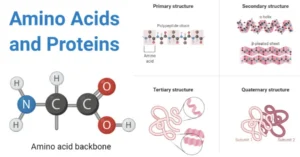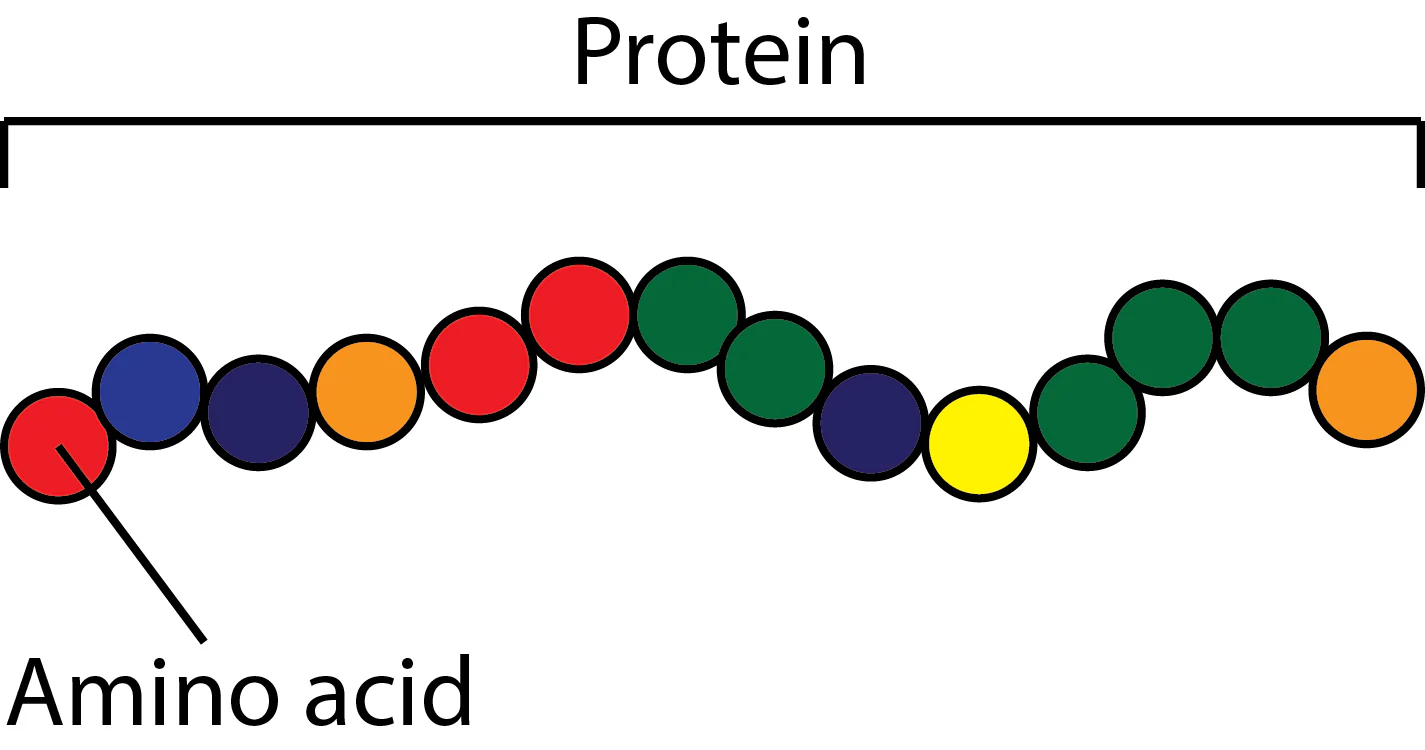Amino Acids and Proteins
Proteins are made up of amino acids. It consists of C, H, N, O and other elements such as S, Fe, etc. Proteins are classified based upon their components such as simple and conjugated proteins as well as depending upon their axial ratio these are divided into globular and fibrous.
When proteins dissociated by the action of enzymes or boiling with acid give rise to simple amino acids. These are present in an alpha form in which the amine group is joined with the C atom next to the carboxyl group. Almost 20 amino acids are present which are classified as essential and non-essential.
 History:
In the 19th century, few amino acids were found. In 1806, asparagus was discovered which was named as asparagine, a first amino acid. During 1810, cysteine was found although its monomers remain undiscovered till 1884. Glycine and leucine came into existence in 1820 and the last amino acid discovered was threonine in 1935 by William cumming rose.
The term amino acid is given in 1898 earlier it was known as Aminosaure which was a german word. The amino acid is the monomers of proteins found out after enzymatic cleavage. In 1902, it was clearly stated that amino acids are linked with peptide bonds to yield proteins.
Advantage:
History:
In the 19th century, few amino acids were found. In 1806, asparagus was discovered which was named as asparagine, a first amino acid. During 1810, cysteine was found although its monomers remain undiscovered till 1884. Glycine and leucine came into existence in 1820 and the last amino acid discovered was threonine in 1935 by William cumming rose.
The term amino acid is given in 1898 earlier it was known as Aminosaure which was a german word. The amino acid is the monomers of proteins found out after enzymatic cleavage. In 1902, it was clearly stated that amino acids are linked with peptide bonds to yield proteins.
Advantage:
 History:
In the 19th century, few amino acids were found. In 1806, asparagus was discovered which was named as asparagine, a first amino acid. During 1810, cysteine was found although its monomers remain undiscovered till 1884. Glycine and leucine came into existence in 1820 and the last amino acid discovered was threonine in 1935 by William cumming rose.
The term amino acid is given in 1898 earlier it was known as Aminosaure which was a german word. The amino acid is the monomers of proteins found out after enzymatic cleavage. In 1902, it was clearly stated that amino acids are linked with peptide bonds to yield proteins.
Advantage:
History:
In the 19th century, few amino acids were found. In 1806, asparagus was discovered which was named as asparagine, a first amino acid. During 1810, cysteine was found although its monomers remain undiscovered till 1884. Glycine and leucine came into existence in 1820 and the last amino acid discovered was threonine in 1935 by William cumming rose.
The term amino acid is given in 1898 earlier it was known as Aminosaure which was a german word. The amino acid is the monomers of proteins found out after enzymatic cleavage. In 1902, it was clearly stated that amino acids are linked with peptide bonds to yield proteins.
Advantage:
- Proteins are the source of nitrogen replacement to the body.
- These are some of the main components of the structure of the cytoskeleton.
- Enzymes present in the human body which act as a catalyst are proteins in nature.
- Immunoglobulins, the first line of defense against infections are proteins.
- Cytochrome, hemoglobin, and myoglobin are proteins that help in the electron transport chain.
- Proteins have the capacity to maintain osmotic pressure in the body.
- High protein diet intake leads to excess weight gain.
- If carbohydrate is absent or the person is taking only a protein diet can face the problem of bad breath.
- Proteins are low in fiber which leads to constipation.
- Taking dairy food in the diet may cause the problem of diarrhea.
- Increases risk of dehydration, calcium loss, constipation, heart diseases, and cancer.



